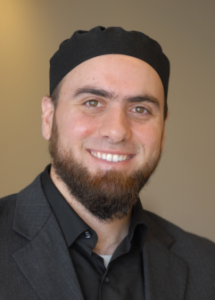
Supporting Victims of Spiritual Abuse
Knowing how best to advocate and work with clients who have been subjected to harassment and abuse can be a weighty and difficult task. It may seem even harder when those responsible for the abuse are trusted spiritual or religious authority figures whom our clients look to for guidance and support. When a client walks into our office with stories of such abuse, or we suspect that our client may be the victim of such abuse, there are several things we should keep in mind as we support them.
Indicators
When exploring our client’s experience with the authority figure in question, we may notice some of the following indicators:
- The client shows signs of being intimidated by or afraid of his or her religious leader. Though this may seem easy to detect, it can actually be tricky to pick out when a client is being subjected to an abusive relationship. Overall, if the client expresses discomfort with the authority figure, you should consider exploring the possibility of abuse. This could manifest in expressions of shame, guilt, or intimidation.
- The client has withdrawn suddenly from his or her religious beliefs or community. Any sudden or drastic change in a client’s relationship to religion or spirituality is a red flag, often indicating a need for avoidance or escape.
- The client rationalizes the behavior of the authority figure. In a study on religious leaders who had sexually abused children, one of the common assumptions made by perpetrators was the conviction that stories of their abuse would never be believed. We can even see this play out with clients who seem to justify for themselves the actions of their abuser or have trouble accepting the reality of the abuse. Indeed, some clients’ expressions of abuse are often invalidated by family or community members, leading them to doubt their own experience.
These indicators are in many ways similar to those of other abusive relationships. Hence, the clinical background you already possess will also be helpful in screening for spiritual abuse.
Spiritual Abuse
Unfortunately, the term “spiritual abuse” suffers from the same ambiguity that the words “spiritual” and “spirituality” also do within popular culture. This has led to misunderstandings about the term and how and when to apply it correctly. While spiritual abuse is not a DSM or ICD diagnosis, it conceptually falls within our understanding of coercive and abusive relationships. However, spiritual abuse is unique in that the coercion and abuse derive from the misuse of religious and spiritual frameworks in such a manner that leads to the infliction of psycho-spiritual harm.
The term may be used in several ways, including:
- the pressure an individual feels to conform to the rules of a religious or spiritual authority or to their faith community to the detriment of his or her own well-being,
- a backlash from one’s faith community for reporting or making public an incident of abuse,
- And, of course, in relation to religious or spiritual leaders exerting control over his or her followers, often for personal aims.
Spiritual abuse can happen in any faith community. Victims may feel overwhelmed not only by feelings brought about by the traumatic event but also experience an internal struggle of faith due to the religious role and authority of their abuser. The latter may even lead to a spiritual or existential crisis for our client.
Client Support and Advocacy
Instances of spiritual abuse can be painful for our client and his or her faith community. However, our expertise and training can allow us to not only support our client but also advocate for changes in our own faith community. As Muslim mental health professionals, here are a few ways that we can make a difference:
- Develop and cultivate relationships with Imams and Muslim chaplains to encourage knowledge-sharing on the topic of spiritual abuse.
- Set up discussions at your local mosque or at the home of a congregant (where people may feel more free to speak openly) to provide information about emotional health and how to avoid abuse.
- Nurture professional relationships with imams and Muslim chaplains by providing them with clinical support as they serve the community.
- Create a way for community members to report potential abusers as well as a plan to deal with such reports.
- Redirect social media threads to web pages where people can support victims of emotional or spiritual abuse.
When we speak out on behalf of our clients who may be silenced or vilified for being honest about their experiences of spiritual abuse, we help create a more open, secure, and just space for everyone.
References:
Bent-Goodley, T. B., & Fowler, D. N. (2006). Spiritual and Religious Abuse: Expanding What is Known About Domestic Violence. Affilia, 21(3), 282-285. Retrieved December 9, 2017, from https://doi.org/10.1177/0886109906288901 .
Maroof, S. (2017, April 11). I Am Your Psychiatrist, Not Your Sheikh. Retrieved December 9, 2017, from https://muslimmentalhealth.com/news/?p=487
Saradjian, A., & Nobus, D., Ph.D. (2003). Cognitive Distortions of Religious Professionals Who Sexually Abuse Children. Journal of Interpersonal Violence, 18(8), 905-923. Retrieved December 9, 2017, from https://doi.org/10.1177%2F0886260503253881 .
Ward, D. J. (2011). The lived experience of spiritual abuse. Mental Health, Religion & Culture, 14(9). Retrieved December 9, 2017, from https://doi.org/10.1080/13674676.2010.536206 .
About the Author:
 Ibrahim J. Long specializes in the practice and study of Muslim chaplaincy and Islamic education. He received his MA in Islamic Studies and Christian-Muslim Relations and Graduate Certificate in Islamic Chaplaincy from Hartford Seminary. He completed his clinical pastoral care and counseling training at St. Joseph’s Healthcare Hamilton where he was awarded for his integration of academics, research, and clinical practice.
Ibrahim J. Long specializes in the practice and study of Muslim chaplaincy and Islamic education. He received his MA in Islamic Studies and Christian-Muslim Relations and Graduate Certificate in Islamic Chaplaincy from Hartford Seminary. He completed his clinical pastoral care and counseling training at St. Joseph’s Healthcare Hamilton where he was awarded for his integration of academics, research, and clinical practice.
